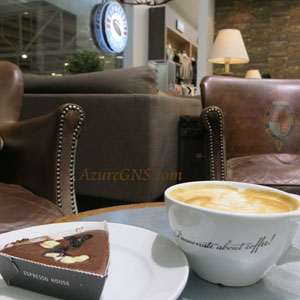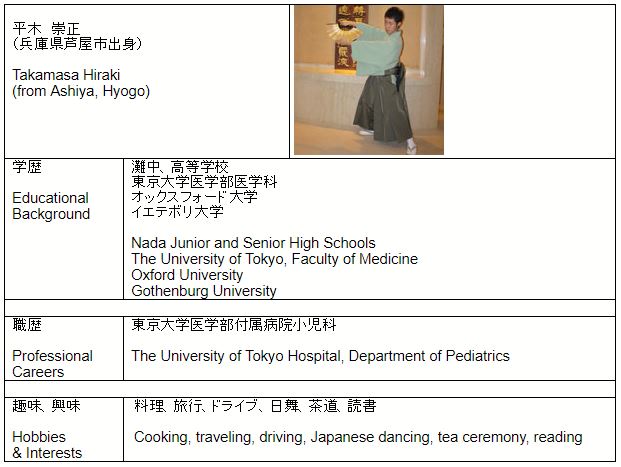フィーカ

前回はスウェーデンの医療事情について書きましたが、今回はスウェーデンで一番興味深かったフィーカ(Fika)の文化について書こうと思います。Fikaとは飲み物とおやつを片手に皆で談笑することで、ピッタリの訳語が無いのですがコーヒーブレイクかアフタヌーンティーという表現が比較的近いかもしれません。ほぼ全てのスウェーデン人が1日に複数回このFikaを行い、当然のように会社や学校でもそのための時間が設けられています。
Last time, I wrote about Swedish medical practices, and today I am going to write about Fika in which I am most interested in Sweden. Fika means chatting over coffee and sweets, so a relatively correct translation into English is a coffee break or afternoon tea though I can’t find a perfect English word to describe Fika. Almost all the Swedes take Fika several times a day, and naturally companies and schools have a special time for it.
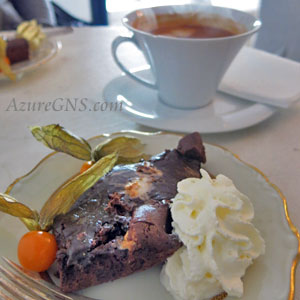
そもそもFikaの語源はスウェーデン語でコーヒーを表すkaffeを前後引っ繰り返した倒語だと言われており、文字通り原義上はコーヒーを飲むことを意味します。また実際にもコーヒーを飲むことが多く、職場に無料のコーヒーマシーンが設置されていることもしばしばです。Fikaのたびにコーヒーを飲むために1日5杯以上飲む人も少なくありません。このため、スウェーデンは1人あたりのコーヒー消費量は世界でも最も多い国のひとつです。勿論コーヒーが苦手な人や小さい子供もいるので、Fikaで紅茶やハーブティー、レモネード、ジュースなどを飲むこともあります。また、飲み物だけでなくケーキやクッキーなどの御菓子や果物を一緒に食べることも特徴で、サンドイッチなどの軽食を食べることもあります。
Originally, the word Fika is considered to be a back-slang form of “kaffe”, coffee in Sweden, so its literal sense is to drink coffee. They actually drink a lot of coffee and many working places are often equipped with free coffee machines. They drink coffee at every Fika, so many people drink more than five cups of coffee a day. Therefore, in Sweden, the average consumption of coffee per day is among the highest in the world. Of course, people who don’t like coffee, and children, drink tea, herbal tea, lemonade or juice. Together with beverages, they have sweets such as cake, cookies or fruits. Sometimes they also have a light meal including sandwiches.
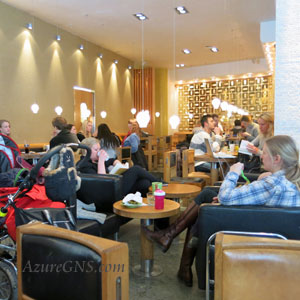
これだけ聞くと単なる頻回のコーヒーブレイクが好きなだけのようですが、スウェーデン人にとってFikaは単なるコーヒーブレイクではありません。皆でコーヒーを飲みながら友人や同僚と時間と空間を共有する有意義な習慣です。日本では職場や大学の同期やクラブの先輩後輩と仲良くなる場として飲み会が設けられることが多いと思いますが、スウェーデンでは日本ほど飲み会は頻回ではありません。その代わりに、スウェーデンではFikaで楽しく会話することによって円滑な人間関係が形成されているように感じられました。また、Fikaがとても大事にされているが故に、職場や学校、友人同士でのFikaに参加しないと「私たち嫌われているのかな?」「体調悪いのかな?」などと心配されてしまうこともあるそうです。
After reading what I previously wrote, you might think the Swedes just like taking frequent coffee breaks but Fika is not a mere coffee break but a meaningful custom in which they share time and space over coffee with their friends or colleagues. In Japan, we often have “nomikai” in which we get together and drink alcohol with our colleagues, classmates or club members after work or school so that we can become familiar with each other. On the other hand, in Sweden, such a drinking party is not so popular. Instead,
Fika plays an important role in the formation of smooth human relations. Because of the great regard for Fika, nonparticipation in Fika sometimes makes others think “Doesn’t he like us?” or “Is he sick?”
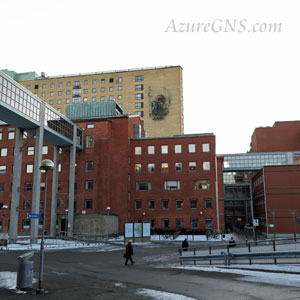
留学中にお世話になっていた大学病院でも毎日10時と15時に必ずFikaの時間がありました。それぞれ30分程度ゆっくりとソファでくつろぐのですが、傍から見るとサボっているように見えるかもしれません。しかし実際は、コーヒーを飲みながら入院患者の治療方針について話し合ったり、外来患者の相談をしたりしていました。日本では会議室で堅苦しい雰囲気の中で話し合われますが、スウェーデンでは同じことを皆リラックスしてコーヒー片手に話し合っているのです。傍から見ている限りでは、Fikaの間は上司と部下の距離感も近くなっているように感じました。緊張感のあるカンファレンスも良いですが、互いにリラックスしている状態で議論することによって、より活発で自由な議論が繰り広げられるのかもしれません。勿論Fikaの間の会話は仕事の話だけではなく、昨日見たTV番組の話や新しく買ったバイクの話といった日常会話も繰り広げられます。この何気ない日常会話も円滑な職場関係の形成に重要な役割を果たしているようでした。
The university hospital where I studied never failed to have a Fika break at 10:00 and 15:00 every day. In every Fika, they spent about 30 minutes leisurely relaxing on a sofa, so they might be mistaken for loafers. However, they were actually talking over treatment plans of inpatients or discussing cases of ambulatory patients over coffee. In Japan, we talk in a meeting room with a formal atmosphere. On the other hand, in Sweden, they relaxingly drink coffee and talk about the same things as we do. As far as I saw them talking, Fika seemed to bring bosses and staff closer together. A conference in a tense atmosphere is beneficial, but when people are relaxing, they may hold a more active and franker discussion. Of course, during Fika, they didn’t talk only about their work but also enjoyed everyday conversations such as TV programs seen the day before or a newly bought motorcycle. This casual conversation also seemed to play an important role in forming smooth relationships in the workplace.
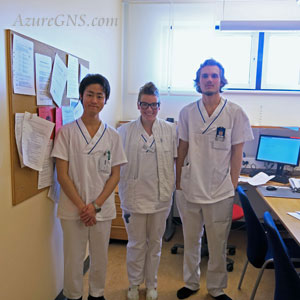
そしてFikaはどんな忙しくても省略されることは滅多にありませんでした。ある日15時頃に外来を見学していると、診察の最中に看護師さんが「Fikaの時間よ!」と言って診察室に入ってきて、コーヒーとケーキを持って来てくれました。日本ではありえない光景にビックリしてしまったのですが、患者も医師も看護師もそれが当然であると言わんばかりの顔をしており、改めて驚いてしまいました。それほどFikaの時間が決められていて大事にされているということだと思います。最早ある意味儀式的と言っても良いかもしれません。
Fika was hardly skipped however busy they were. One day, around 15:00, I was observing the consultation of ambulatory patients and then a nurse came into the consulting room with coffee and cake and said, “It’s time for Fika!”. I was surprised to see the sight which would never happen in Japan, and what made me more surprised was everyone including a patient, a doctor and a nurse took it for granted. This is a typical example that Fika is very punctual and important so Fika may already be a ceremony in a sense.

このようにFikaはスウェーデンの人々の中にしっかり根付いた文化となっています。いつか日本でもこの文化を取り入れて、職場や学校などでも毎日皆でゆっくりコーヒーを飲みお菓子を食べながら談笑できる日がくれば良いなと思っています。
As I have described, Fika has deeply taken root in Swedish culture. I wish someday Japan would introduce this culture and we can leisurely have a pleasant talk over coffee and sweets in a working place or at school every day.
